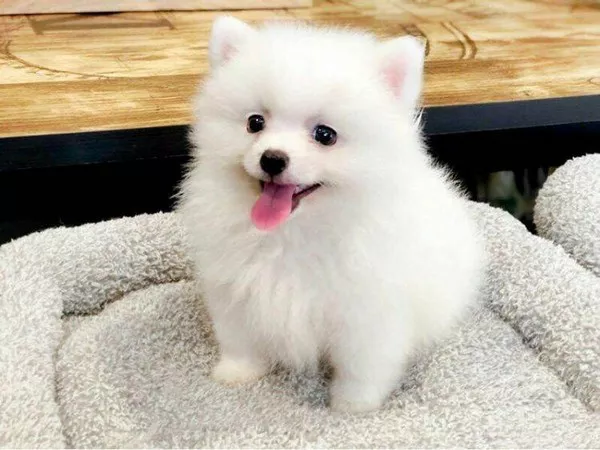Pomeranians, known for their vibrant personalities and diminutive size, often capture the hearts of dog enthusiasts. However, for Pomeranian owners, understanding their furry companions’ bladder control is essential for effective potty training and overall well-being. This comprehensive guide delves into the intricacies of a Pomeranian’s bladder capacity, exploring factors influencing bladder hold duration and offering practical insights for responsible pet care.
The Puppy Perspective
In the early stages of a Pomeranian’s life, bladder control is a developing skill. Puppies, like human infants, have limited bladder capacity and may need to relieve themselves frequently. Generally, a young Pomeranian puppy can hold its bladder for approximately one hour for each month of age. For example, a two-month-old Pomeranian puppy might need a potty break every two hours. Understanding the age-related dynamics of bladder control is crucial for establishing a consistent potty training routine.
Size Matters
The size of a Pomeranian plays a significant role in determining how long their bladder can hold. Smaller dog breeds, including Pomeranians, often have smaller bladders compared to larger breeds. As a result, they may need more frequent bathroom breaks. While individual variations exist, recognizing the impact of size on bladder hold duration allows owners to tailor their approach to potty training and anticipate the needs of their pint-sized companions.
Potty Training Strategies
Effective potty training is foundational to developing a Pomeranian’s bladder control. Establishing a consistent routine, providing positive reinforcement, and using designated potty areas contribute to successful training. Pomeranians thrive on routine, so regular bathroom breaks, especially after meals and waking up, help reinforce good habits. As the puppy matures and bladder control improves, owners can gradually extend the time between potty breaks, aligning with the dog’s developmental stages.
Age and Bladder Maturity
As Pomeranians age, their bladder capacity increases, leading to longer hold times. Around six months of age, many Pomeranians can hold their bladder for approximately six hours, depending on individual factors. However, it’s crucial to approach this progression with patience and gradual adjustments. Rushing the process may lead to accidents and setbacks in potty training. Monitoring the Pomeranian’s signals and gradually extending the time between bathroom breaks supports a smooth transition to extended bladder hold durations.
Individual Variations
While general guidelines exist, it’s essential for Pomeranian owners to recognize the influence of individual variations on bladder control. Some Pomeranians may naturally have a higher or lower bladder capacity than others. Additionally, factors such as overall health, diet, and stress levels can impact bladder control. Observing and understanding the specific needs of each Pomeranian allows owners to tailor their care and address any unique considerations affecting bladder hold duration.
Senior Pomeranians
As Pomeranians enter their senior years, changes in bladder control dynamics may occur. Older dogs, like their human counterparts, may experience a decrease in muscle tone and bladder function. Senior Pomeranians may need more frequent bathroom breaks to accommodate these changes. Adjusting the potty routine, providing easy access to designated areas, and offering additional support for senior dogs contribute to maintaining a comfortable and hygienic environment for aging Pomeranians.
Hydration and Diet
A Pomeranian’s bladder health is closely tied to hydration and diet. Proper hydration supports overall urinary function and helps maintain bladder health. Ensuring that a Pomeranian has access to clean water at all times promotes adequate hydration. Additionally, diet composition can influence the frequency of bathroom breaks. High-quality, nutritionally balanced dog food contributes to a healthy urinary system, reducing the likelihood of issues that may affect bladder control.
Environmental Factors
The physical environment plays a role in a Pomeranian’s bladder comfort. Providing easy access to designated potty areas, especially for apartment-dwelling Pomeranians, supports consistent bathroom habits. Creating a positive and stress-free environment is equally important. Dogs, including Pomeranians, may struggle with bladder control if they feel anxious or unsettled. Minimizing stressors and ensuring a comfortable living space contribute to a Pomeranian’s overall well-being, including bladder health.
Health Check
In some cases, medical considerations may impact a Pomeranian’s bladder control. Urinary tract infections, bladder stones, or other health issues can lead to changes in bathroom habits. If an owner observes sudden shifts in a Pomeranian’s ability to hold its bladder or notices signs of discomfort during urination, a prompt veterinary check-up is essential. Addressing potential medical concerns promptly ensures optimal bladder health and prevents complications that may arise from untreated conditions.
Travel and Routine Changes
Changes in routine, travel, or new environments can influence a Pomeranian’s bladder control. Dogs, by nature, thrive on predictability, and disruptions to their routine may impact bathroom habits. When embarking on travel or experiencing changes in daily activities, owners should be mindful of their Pomeranian’s need for consistency. Providing familiar items, maintaining a regular feeding schedule, and ensuring access to familiar potty areas help minimize stress and support continued bladder comfort.
Conclusion
In conclusion, mastering a Pomeranian’s bladder control involves a nuanced understanding of their developmental stages, individual variations, and unique needs. From the early days of puppyhood to the senior years, responsible pet care includes tailoring potty training, recognizing environmental influences, and addressing any medical considerations. By approaching bladder health with patience, consistency, and a keen awareness of their furry friend’s signals, Pomeranian owners can foster a comfortable and hygienic living environment, ensuring the well-being of their beloved companions.


